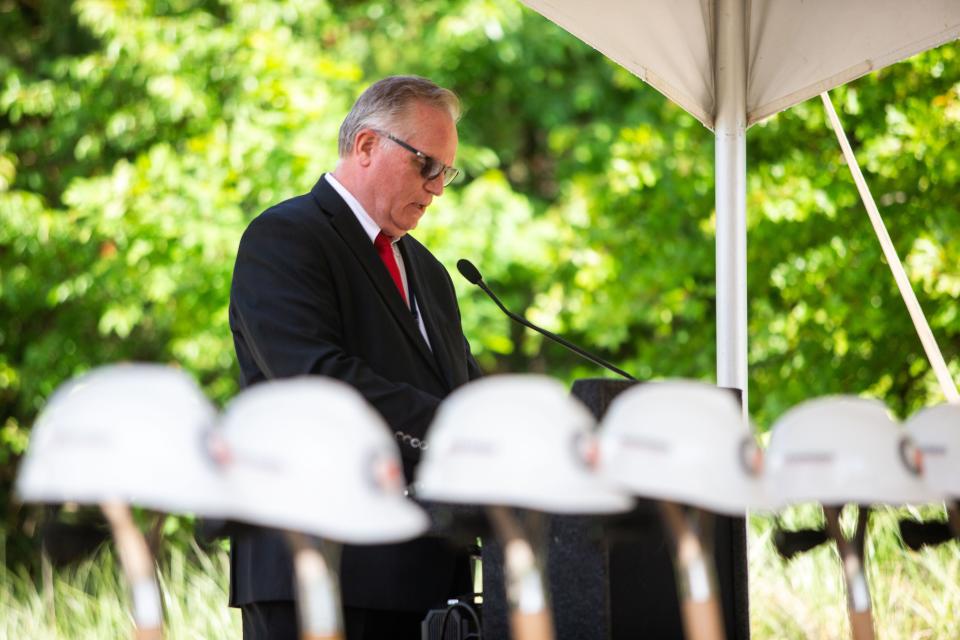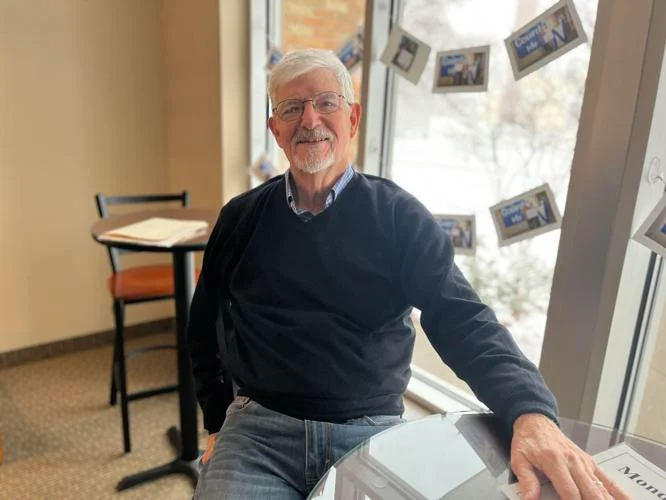Ottawa County Recovery Court is fighting addiction one participant at a time
OTTAWA COUNTY — Sitting in a courtroom on the second floor of the Ottawa County Courthouse, it looks like a regular daily docket of court hearings. Defendants fill the gallery, and each takes their turn to speak with the judge.
But the approach of this court is, in fact, very different.
“What are you grateful for today?” Probate Judge Mark Feyen asks the man standing in front of him, who has just updated him on his career, family life and personal struggles.
After more back-and-forth chatter with the defendant, and a dash of humor, Feyen and the entire room — defendants and court staff — give a round of applause before moving on.
This is Ottawa County Recovery Court. Here, people with an addiction who've had repeated run-ins with the law come to get sober and stay in line.
But, in spite of the name, it's not really a court. It's a program.
"It’s a marriage of the criminal justice system and substance abuse treatment," Feyen said.
Ottawa County Recovery Court, launched in 2005, comes with potential punishment — including jail time if the defendant relapses on alcohol and/or drugs.
“In order to make treatment work for some people, there has to be a coercive element involved, and courts can apply that,” Feyen said.
One participant, Mike, said the structure of the program pushes people to succeed.
“It’s not been easy, but the way it’s structured, you have no choice,” he said. “If you work the program, it’ll change your life.”
The average participant goes through five phases for a total of 18 months before graduating.

After decades of being addicted to meth and seven prison stints, Mike, 53, said he was “sick and tired of being sick and tired.” Now, he’s almost two years sober and ready to graduate from the program.
Mike has even repaired his relationship with his mother, with whom he'd lost touch because of his drug abuse.
“That’s big for me because me and my mom have never had a real relationship, but now it’s rock-solid,” he said.
If a participant violates the program — by missing or showing up late to an appointment, or using drugs or alcohol — a “sanction,” or punishment, is put in place. Sometimes it’s jail, sometimes it could be a writing assignment, depending on the type and severity of the infraction.
“We don’t tolerate small infractions,” Feyen said. “We try to use jail sanctions the vast majority of the time, a short jail sentence (1-3 days). I don’t believe in long jail sentences.”
Other types of “sanctions” might include community service or serving a detention day, an alternative to jail.
“People can learn from a one- or two-day jail sentence as much as they learn from a six-month sentence,” Feyen said. “You want people to do better ... get this over and then you can start fresh.”
Feyen said he works hard to be fair with program participants, and if they don’t feel a punishment is warranted, he'll give them due process.
"We’ll schedule a hearing,” he said. “You always get the benefit of the doubt. Sometimes we’ll have a test result that is ambiguous. … If they question that test result, you don’t get sanctioned."
Feyen said one of the principles of Recovery Court is balancing 10 “positives” for one sanction. He spends much of his time with each participant asking about their lives, personal interests, family, jobs and success in the program.
Relationship building is another key component. One participant — who asked to remain anonymous — said she’s grown so close to her probation officer and other leaders in the program, they're the first people she texts when she has good news to share.
"They really care and they really put an effort into helping and being a part of our lives," she said.
The participant, 25, said she was an addict to alcohol and, eventually, meth, and this probation is the first she’s completed, even though she’s been in and out of the criminal justice system since she was a teenager.
At the beginning of the program, the woman said, she relapsed.
“I called (my probation officer) right away and told him what happened,” she said. “Now, anytime I think about using — which isn’t often anymore — I just play the tape back and remember how crappy that felt, like I had failed.”
Now, she’s working and studying to be a substance abuse counselor.
Recovery Court has a volunteer group that supports participants.
“The typical person in our (recovery) program is coming in with several felonies and double-digit misdemeanors, a lot of brokenness. … This is an opportunity for them to connect with people that they otherwise might not," said program coordinator Andy Brown.

After each biweekly Recovery Court hearing, the volunteers host a gathering with food and drinks for the participants at First Presbyterian Church. The event is purposely held nearby, so participants can either stop by before or after their hearing. Feyen even pays a visit and chats with program participants.
“It’s a come-as-you-are event, and the religious component is not pushed or forced or part of the services provided,” Brown said.
Newly retired Roger Starkweather founded the gathering 17 years ago to support the efforts of the Recovery Court.
“I thought this was a worthy thing to be involved in,” he said.
Starkweather was thanked for his service by court staff and program participants, and even some past participants, at the latest gathering.
The Ottawa County Recovery Court Program has been recognized as a “national mentor court” — an example for similar programs across the country — by the U.S. Department of Justice for the past five years, according to Brown.
“We’ve provided technical assistance to over 50 court teams across the United States,” he said, adding the program is completely grant-funded, with no support from local tax dollars.
“It’s a service to the community at no cost,” he said. “We hope one day the county will fund our program.”
This article originally appeared on The Holland Sentinel: Ottawa County Recovery Court is fighting addiction one participant at a time

